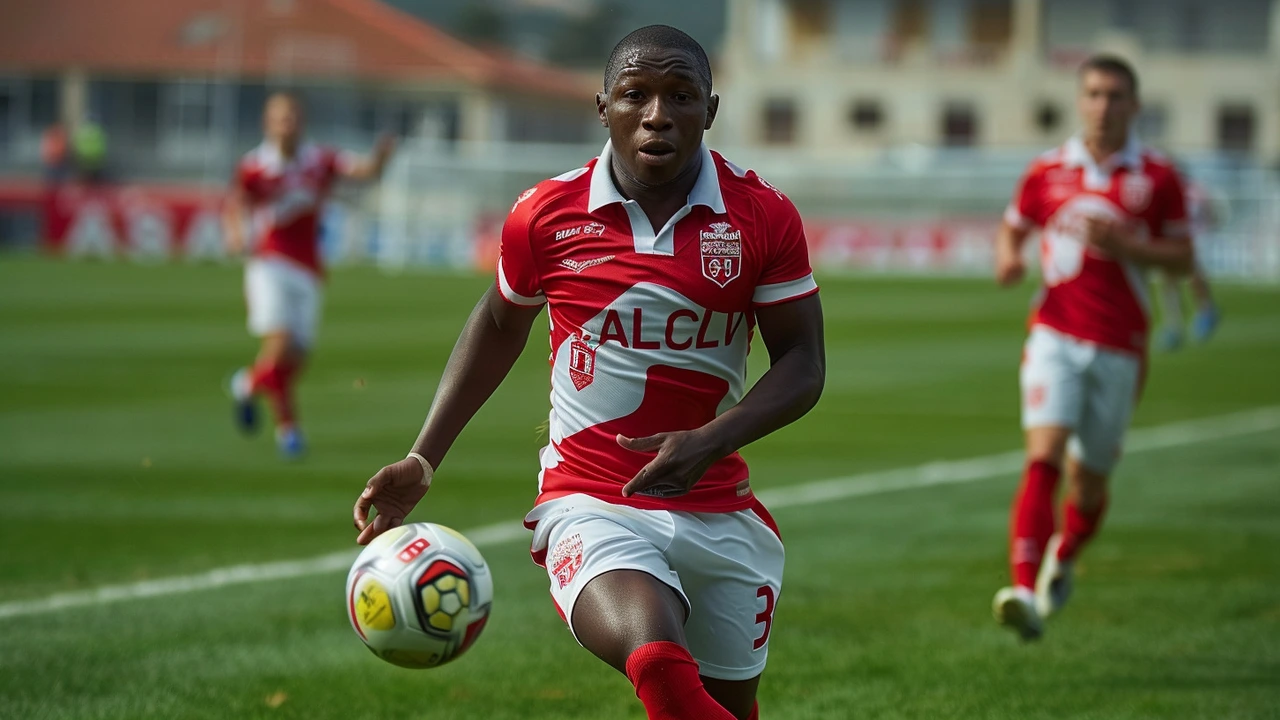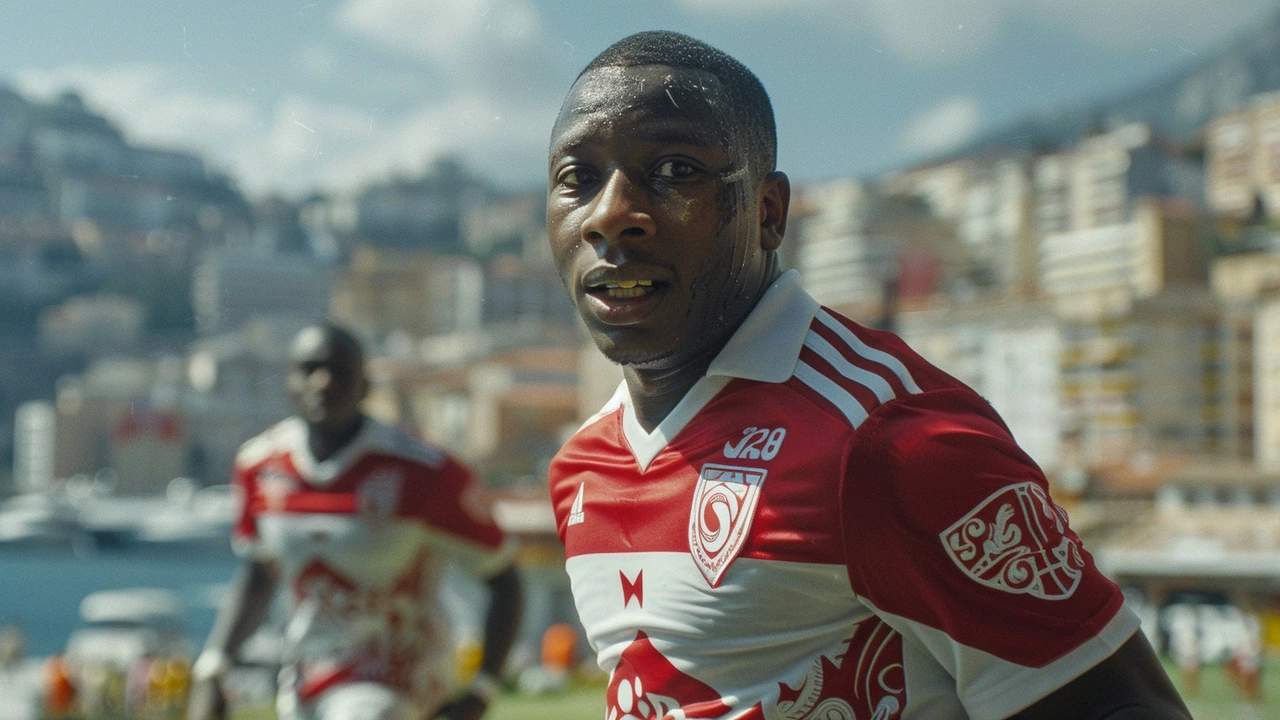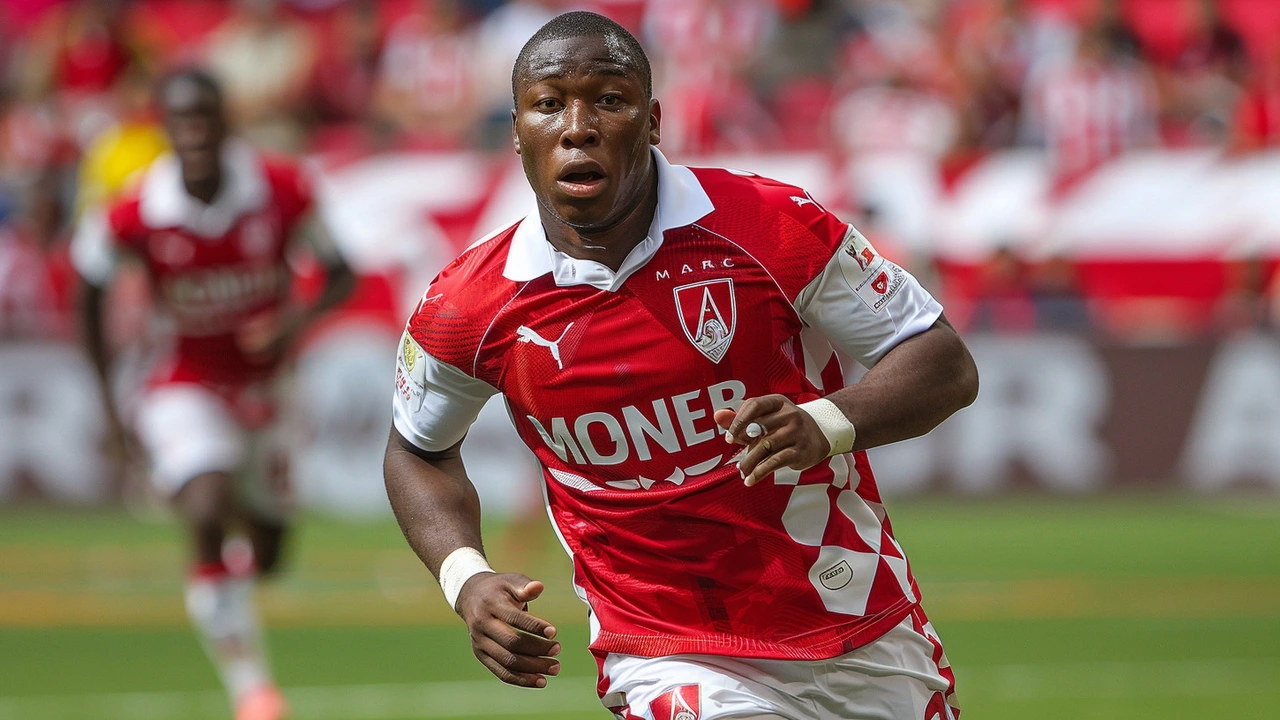Monaco's Mohamed Camara Suspended for Concealing Anti-Homophobia Badge
The French football league (LFP) has handed a four-game suspension to 24-year-old Monaco midfielder Mohamed Camara. This decision follows his decision to cover an anti-homophobia badge on his jersey during a Ligue 1 match against Nantes. The suspension, which came after a formal hearing, highlights Camara’s refusal to participate in the league's ongoing anti-homophobia campaign, a stance that has drawn significant attention and criticism.
The French sports minister, Amélie Oudea-Castera, was vocal about the incident, demanding severe consequences for Camara’s actions. She described them as unacceptable, reflecting the government's strong stance against any form of discrimination in sports. Her call for stringent action underscores the importance of such campaigns in promoting inclusivity and combatting intolerance both on and off the field.
Camara’s decision has not only caused an uproar among fans and officials but has also been a matter of internal concern for AS Monaco. Thiago Scuro, the club’s general manager, expressed regret over the incident. He explained that Camara's actions were influenced by his religious beliefs but maintained that the club does not support such actions. Scuro’s statement illustrates the tightrope that clubs often walk in balancing individual beliefs with broader societal expectations and commitments to inclusivity.
Meanwhile, head coach Adi Hütter acknowledged the league's decision and highlighted the club’s support for the anti-homophobia initiative. “We stand by the league’s campaign and the values it promotes,” he said. Hütter's comments also reflected the broader support for inclusive efforts within the sporting community. The anti-homophobia initiative, which the league has been running for the past three seasons, aims to raise awareness and foster a more inclusive environment in football.

An Ongoing Struggle for Inclusivity
The incident involving Camara is not an isolated one. It marks the latest in a series of oppositions faced by the league’s campaign. In previous seasons, other players, like Paris Saint-Germain's Idrissa Gueye, have also been criticized for similar actions. These instances highlight the challenges in implementing and gaining universal acceptance for inclusivity initiatives within the sport.
The league's anti-homophobia campaign involves players wearing special badges during matches and participating in awareness-raising activities. The emblem Camara covered is a visible symbol of support for the LGBTQ+ community. Actions like Camara’s can undermine these efforts and contribute to a sense of exclusion, particularly for LGBTQ+ fans and players who look to football as a space where they can feel accepted and supported.
To address such incidents, the LFP has been tightening its policies and reinforcing the consequences for non-compliance. The four-game ban imposed on Camara is one of the more severe sanctions handed down in recent times, highlighting the league's commitment to its anti-discrimination stance. This is also seen as a move to set a precedent and deter similar actions in the future.
The Broader Implications for Football
Such events have broader implications beyond just the teams and individuals involved. They bring to the forefront the ongoing conversation about inclusivity and representation in sports. Football, being one of the world’s most popular sports, has a significant influence on societal norms and values. Campaigns against homophobia and other forms of discrimination play a crucial role in shaping positive attitudes and promoting social cohesion.
Sports organizations worldwide are increasingly recognizing their responsibility in this regard. They are adopting measures to address various forms of discrimination and promote a more inclusive environment. The backlash against players who do not support these initiatives underscores the evolving expectations within the sports community, reflective of broader societal shifts towards greater acceptance and equality.

Religious Beliefs and Inclusivity
A key aspect of the debate surrounding Camara’s actions is the interplay between personal beliefs and professional responsibilities. In his statement, Thiago Scuro mentioned that Camara’s decision to cover the badge stemmed from his religious convictions. This raises important questions about how sports organizations navigate the balance between respecting individual beliefs and upholding their commitment to inclusivity.
Religious beliefs are deeply personal and can significantly influence individuals’ actions and decisions. However, when these beliefs conflict with organizational policies or societal expectations, it creates a complex situation. Organizations must find ways to respect personal beliefs while also promoting and protecting the values of inclusivity and equality. This balance is crucial in ensuring that all individuals feel respected and valued within the sporting community.
The actions taken by the LFP, the responses from Monaco’s management, and the broader discussions prompted by this incident reflect the ongoing efforts to address these complexities. They highlight the importance of continuing conversations and actions to create an environment where all individuals can express themselves freely while also supporting the collective goals of promoting acceptance and fighting discrimination.
Moving Forward: Lessons and Actions
The suspension of Mohamed Camara serves as a reminder of the challenges and responsibilities that come with promoting inclusivity in sports. It underscores the need for continuous efforts to educate and engage players, officials, and fans in creating a more inclusive environment. Awareness campaigns, like the one run by the Ligue 1, play a vital role in this regard. They provide a platform for promoting understanding, acceptance, and support for marginalized communities.
Football clubs and leagues must continue to implement and enforce policies against discrimination while also providing support and education to those involved in the sport. Creating an inclusive environment requires a collective effort, with everyone from players to management and fans playing a part. Through ongoing education, open discussions, and strong policies, the sports community can work towards eliminating discrimination and fostering a culture of acceptance and respect.
The incident also serves as a call to action for other sports organizations worldwide. It highlights the importance of addressing incidents of discrimination decisively and consistently. By doing so, they can set a positive example and contribute to the broader goal of promoting inclusivity in sports and beyond.

